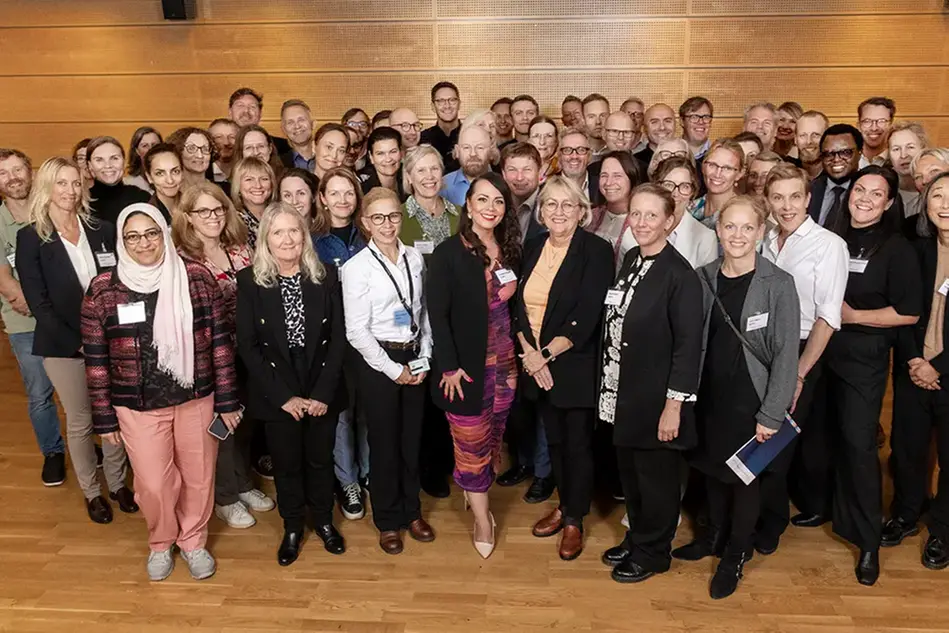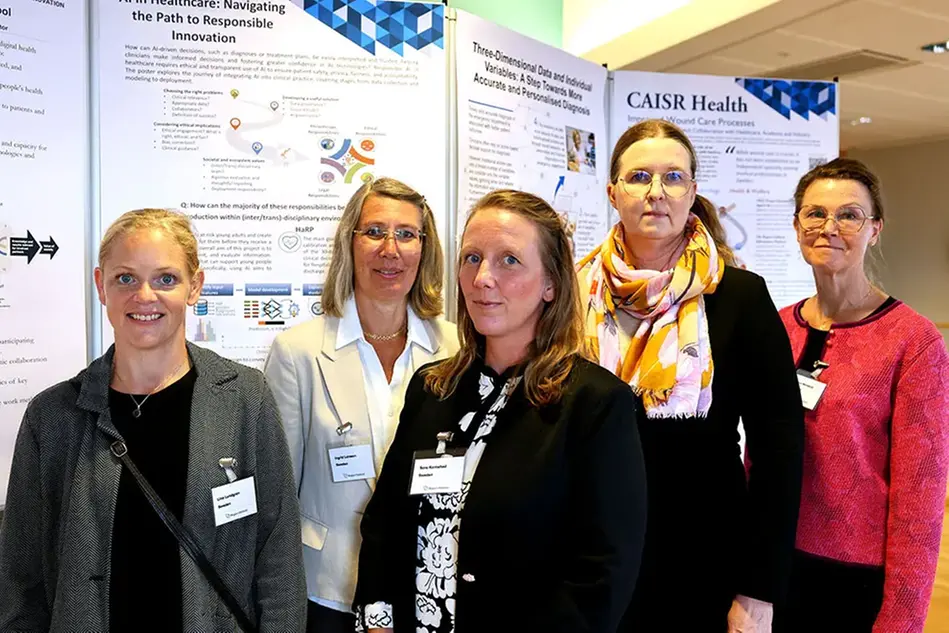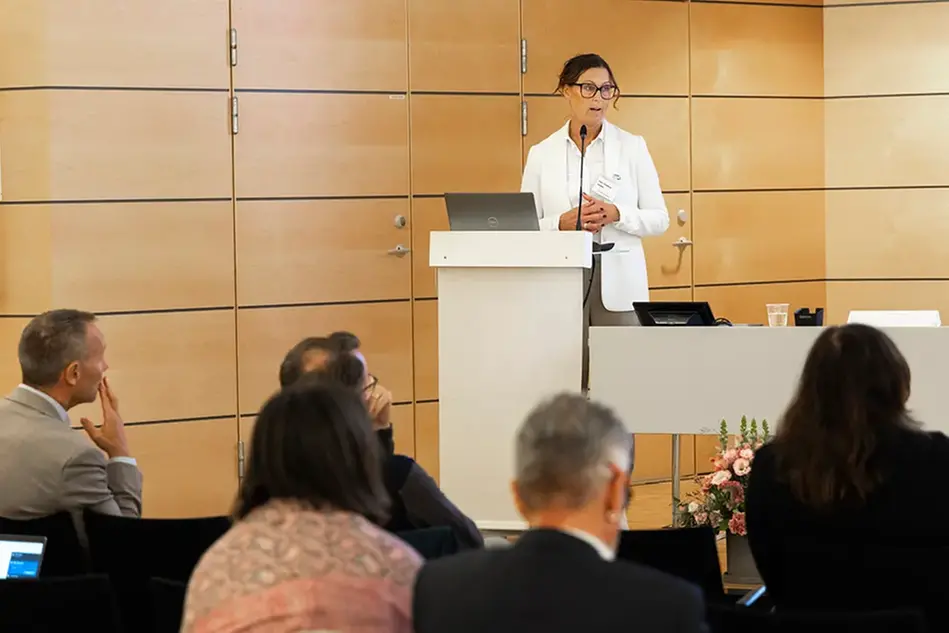Collaboration on healthcare practices impressed European network
Healthcare systems need to create new conditions that motivate staff to stay and deliver quality care and meet patients’ needs both now and in the future. This was the main message when WHO Europe and the Swedish National Board of Health and Welfare visited Halmstad last week. The agenda focused on innovation, new thinking, and expanded collaborations. Several researchers from Halmstad University presented their research during the meeting.

WHO-Europa and the Swedish National Board of Health and Welfare visited Halmstad on 23–25 September.
The Halmstad meeting between Region Halland, the Swedish National Board of Health and Welfare, and WHO Europe is the first in a series of meetings centred on issues concerning healthcare workers.
“We need to improve at retaining the healthcare staff we already have by improving their working conditions, increasing their competence, and reducing the risk of burnout”, says Tomas Zapata, a specialist in healthcare workforce issues and head of the Health Workforce and Service Delivery Unit at WHO Europe’s office in Copenhagen.
Utilising data to work based on facts
Researchers from Region Halland and Halmstad University, along with developers and leaders, presented practical examples from academia, primary care, and hospital care. They demonstrated how to work based on facts whilst utilising data from digitalised healthcare systems, including presentations on how these data can make planning staff time more efficient.

Several researchers from Halmstad University presented research posters during the meeting, amongst them, from the left: Lina Lundgren, Ingrid Larsson, Sara Karnehed, Lena Pettersson and Anna Marzelius. Also Jens Lundström and Amira Soliman were participating.
Farzaneh Etminani is a Docent in Information Technology and one of the researchers from Halmstad University who participated in the meeting.
“WHO and the National Board of Health and Welfare emphasised that Halland has come a long way in information-driven care. They understood that the collaboration between academia, healthcare, and industry, known as the triple helix, is one of the success factors for Halland being at the forefront of information-driven care. The work around health data in academia and in practice was particularly highlighted, CAISR Health’s partners also facilitated discussions on how to work together within this triple helix to benefit patients.” says Farzaneh Etminani.
AI, implementation and innovation
Petra Svedberg, Professor of Nursing and leader of the research programme IDC (Information Driven Care) at Halmstad University, noted that the University’s successful cross-disciplinary work in AI, implementation, and innovation was emphasised.

Petra Svedberg was one of several researchers giving a presentation for the visitors.
“This was highlighted as a very important factor for our successful collaboration with Region Halland in information-driven care”, says Petra Svedberg and continues:
“Usually, regions can have difficulties getting different disciplines to cooperate on the same project, but our cross-disciplinary approach facilitates collaboration and makes it more effective, creating clear benefits for both healthcare and regional development.”
Jens Nygren, Professor of Health Innovation and leader of the University’s focus area Health Innovation, noted that much research at Halmstad University is linked to challenges in the healthcare sector:
“It’s about treatment, care processes, and other aspects of the patient’s journey through the healthcare system. Importantly, all of this also impacts healthcare professionals, their workload, and the work environment, which this meeting has addressed. Halmstad University’s research has a significant connection to these issues.”
Healthcare sector an ecosystem
Jens Nygren also reflected on the role Halmstad University plays in driving development:
“There are many different parties in the healthcare sector’s ecosystem, Region Halland in this case, as well as business actors and other regions in Sweden. As a university, we have a role to play in being an enabler and an independent party in the needed relationships to drive change work in this ecosystem.”
Text: Region Halland and Kristina Rörström
Bild: Region Halland
About the meeting at Region Halland
The meeting in Halmstad between Region Halland, the National Board of Health and Welfare and WHO-Europe is the first in a series of meetings where issues relating to employees are in focus. Estonia is next in line to host in 2025. After that, Scotland will take the hosting of the meeting in 2026.
published
Updated
CONTACT
Farzaneh Etminani
share
 Svenska
Svenska